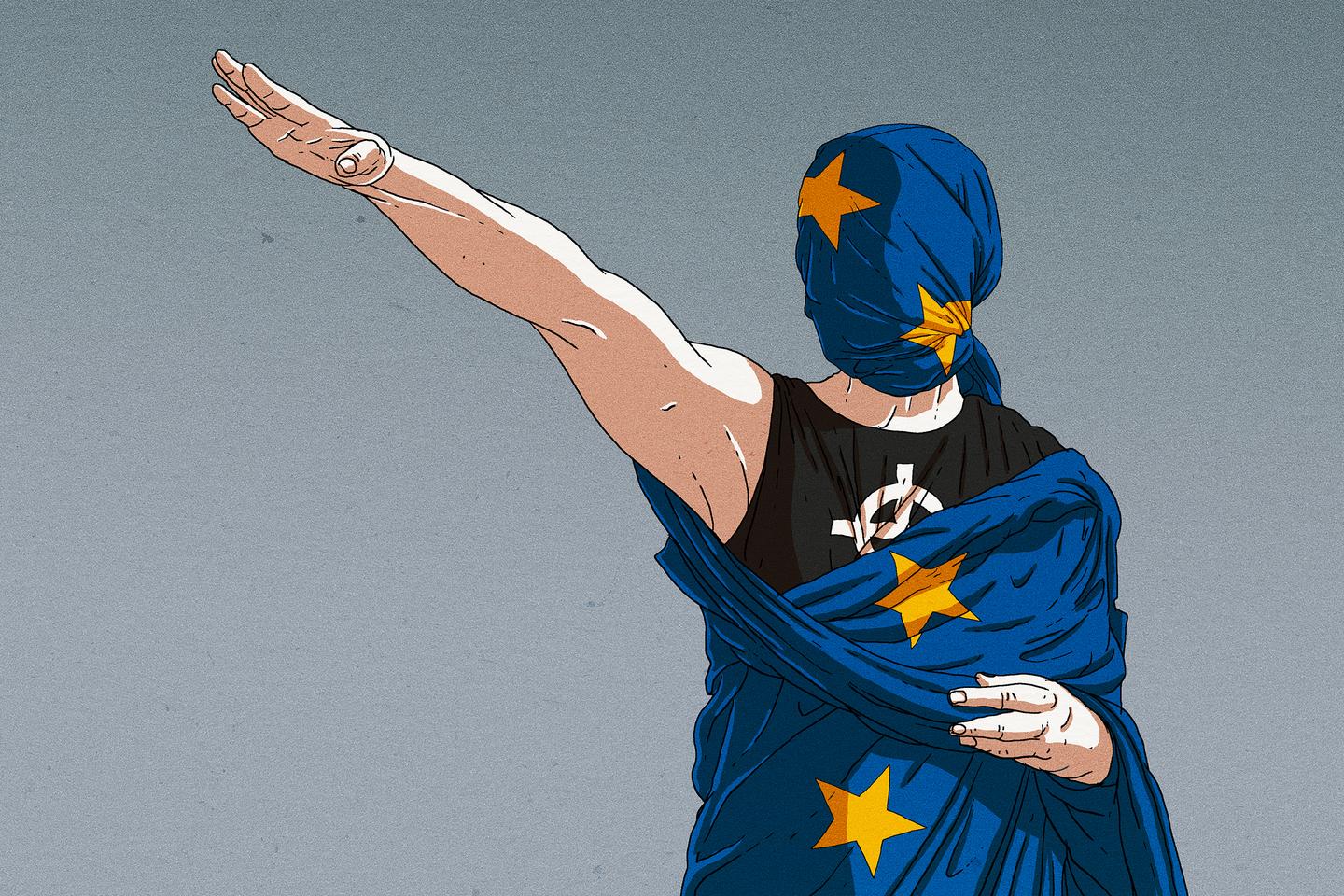“As Westerners, we have not only the right, but even the moral duty, to prefer our civilization to the others.” When he spoke from the podium at the National Conservatism Conference, held on April 16 and 17 in Brussels, Belgian neo-conservative essayist David Engels knew that his positions on Europe were not the most widely shared among the European far-right leaders and intellectuals his audience comprised. Entitled “Preserving the Nation-State in Europe,” the 2024 edition of this conference, like its predecessors, brought together a large majority of sovereigntists and nationalists, who were more inclined to criticize the European Union (EU) than to consider recasting it in their own image. Meanwhile, as a fervent defender of a “European civilization” that would justify building an “alternative Europe” to that of Brussels, Engels preferred to emphasize what unites him with his listeners – in particular, the conviction that Europe’s “traditional cultural identity” must be defended against the threats that immigration and multiculturalism pose to it.
Engels, when interviewed by Le Monde, was nevertheless optimistic about the progress of his views in these circles: “When I started writing and publishing, my positions, both conservative yet very pro-European, were indeed still relatively rare. But more and more European conservatives have realized that they were facing the same issues as their counterparts in neighboring countries, and that they could work together. For some, it was even worth asking what makes us not just French, German or Italian, but also European; and what concepts we could develop to rebuild the EU,” he said.
Indeed, on his end of the political spectrum, the number of think tanks, periodicals and conferences devoted to Europe seems to be increasing. For example, the Center for European Renewal (CER), founded in 2007, a conservative organization based in Amsterdam, the Netherlands, has played a leading role in this school of thought, a role today held by the journal The European Conservative, which emanates from the CER and officiates from Vienna, Austria, and Budapest, Hungary. Similarly, while, in 2018, the publication of La Déclaration de Paris (“The Paris Declaration”), a collective work co-authored by conservative philosopher Chantal Delsol, advocated a “carnal,” “democratic” and “spiritual” Europe, more recently the Institut Iliade, an identitarian think-tank founded by historical far-right figure Jean-Yves Le Gallou, organized a symposium entitled “De l’héritage à l’engagement, l’Europe de nos enfants” (“From heritage to commitment, our children’s Europe”).
You have 88.22% of this article left to read. The rest is for subscribers only.

